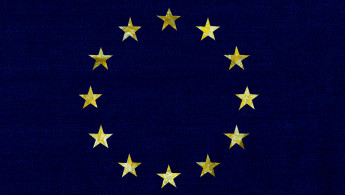EU leaders agree on 'severe sanctions' against Russia amid Ukraine invasion
EU leaders gathered for an emergency summit Thursday agreed to punish Russia for its invasion of Ukraine with "severe" sanctions targeting its financial, energy and transport sectors.
"We need sanctions that bite," Belgian Prime Minister Alexander De Croo said as he went into the Brussels meeting, happening the same day Russia blasted Ukrainian military targets and sent tanks and paratroopers into its pro-Western neighbour.
The leaders quickly agreed "further restrictive measures that will impose massive and severe consequences on Russia for its action".
Summit conclusions published at the start of the meeting said "these sanctions cover the financial sector, the energy and transport sectors, dual-use goods as well as export and export financing, visa policy", as well as adding more Russian individuals to an EU travel ban and asset freeze list.
The sanctions -- which come on the heels of a smaller packet of measures adopted by the EU late Wednesday, just before the Russian invasion -- will come into effect once legal texts are drawn up and formally approved by member states' envoys and published in the EU's official journal.
That was expected to happen as early as Friday.
After the conclusions were published, the summit continued with the leaders discussing how to ramp up political, economic and humanitarian support for Ukraine.
Earlier, European Commission President Ursula von der Leyen said the proposed sanctions package aims to hobble economic growth in Russia, make borrowing more costly, raise inflation, intensify capital outflows and "gradually erode its industrial base".
But while the EU agreement on the packet was rapid, there were clear divisions going into the summit over an untriggered option of kicking Russia out of the SWIFT network that the world's banks use to securely send messages in order to carry out transactions.
Ukrainian President Volodymyr Zelensky has urged the West to use that lever, which has already been implemented to devastating effect against Iran's banking sector.
But US President Joe Biden, speaking in Washington as the EU summit started, said: "It is always an option but right now that's not the position that the rest of Europe wishes to take."
That assessment was borne out by the words of German Chancellor Olaf Scholz, who suggested SWIFT should not be included in the new round of sanctions being considered, but perhaps kept in reserve.
Asked specifically about including SWIFT in the sanctions, he said: "It is very important that we decide measures that have been prepared these past weeks and to keep the rest for a situation where it might be necessary, for other things."
Other EU leaders chafed at that stance.
"Talk is cheap... we have to be united around massive sanctions, severe sanctions," Polish Prime Minister Mateusz Morawiecki said.
"We shouldn't have taboo subjects," Luxembourg Prime Minister Xavier Bettel said.
Latvia's prime minister, Krisjanis Karins, said: "SWIFT, I think it's the very right direction, I think we should go in that direction", but only if other jurisdictions outside Europe also adopted that tactic.
The EU also agreed to prepare fresh sanctions against Belarus for serving as a launchpad for part of Moscow's assault on Ukraine.
Belarus, a Russian ally that lies along Ukraine's northern border and is close to the Ukrainian capital Kyiv, has hosted tens of thousands of Russian troops, which have used it as a staging ground for their assault. They have driven over the border and used positions to fire artillery.
Belarus strongman Alexander Lukashenko said after a meeting of his military top brass Thursday that his armed forces were not participating. But Ukraine stresses that Russia is attacking it with Belarus's connivance.





 Follow the Middle East's top stories in English at The New Arab on Google News
Follow the Middle East's top stories in English at The New Arab on Google News


![22 Arab countries at COP29 have rejected the targeting of fossil fuels [Getty]](/sites/default/files/styles/image_330x185/public/2024-11/GettyImages-2184289638.jpg?h=199d8c1f&itok=ptHl5bec)